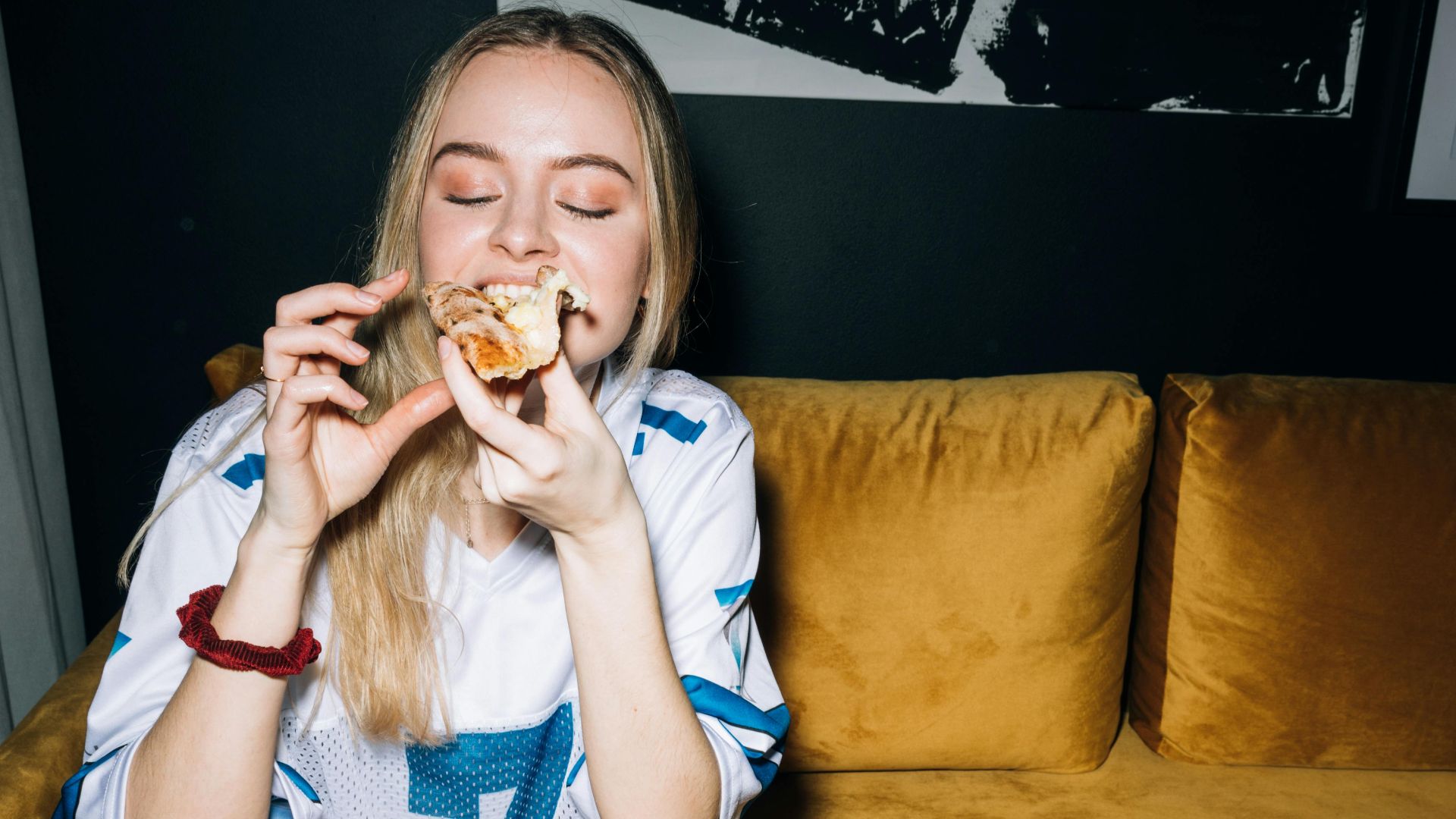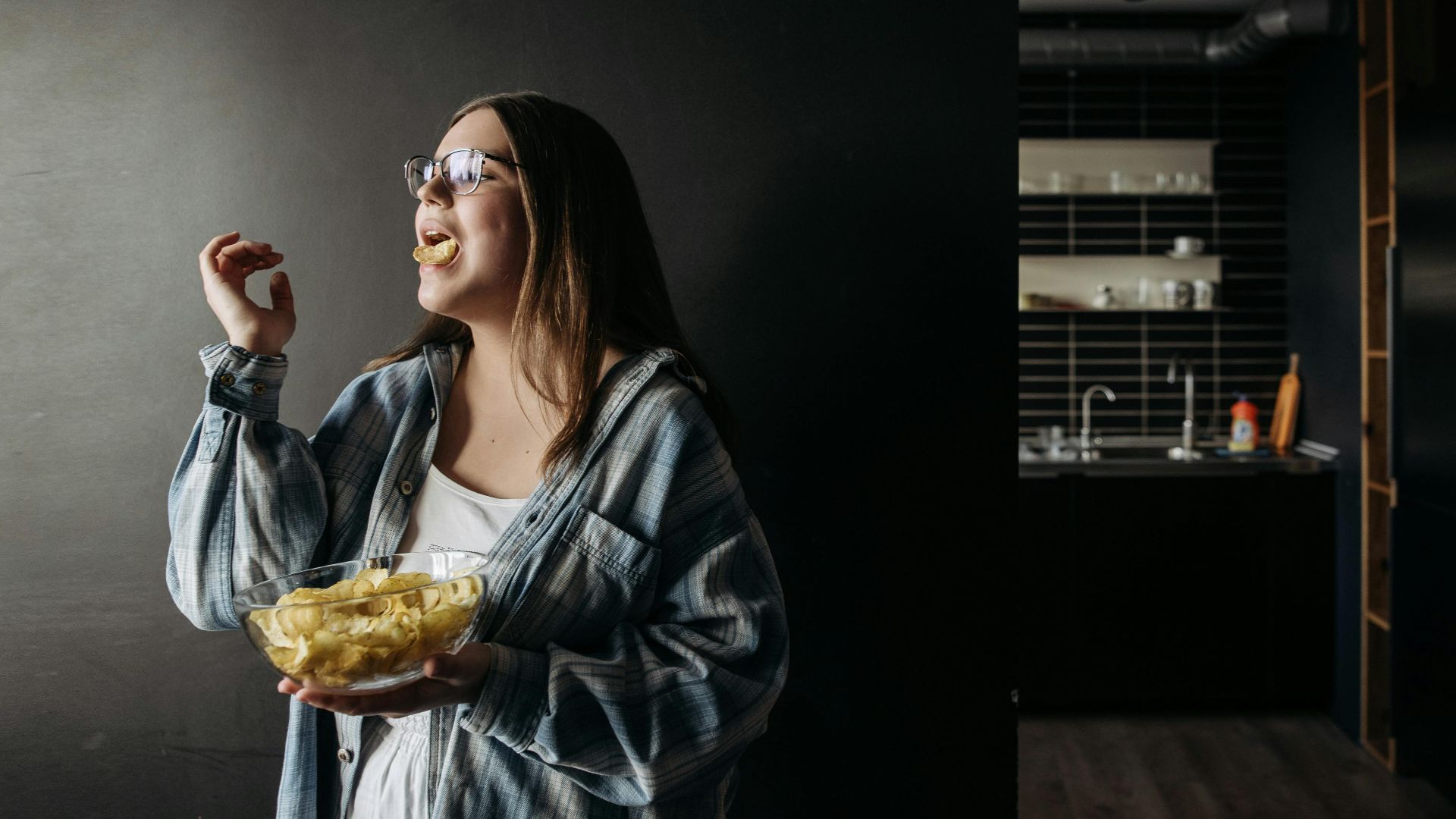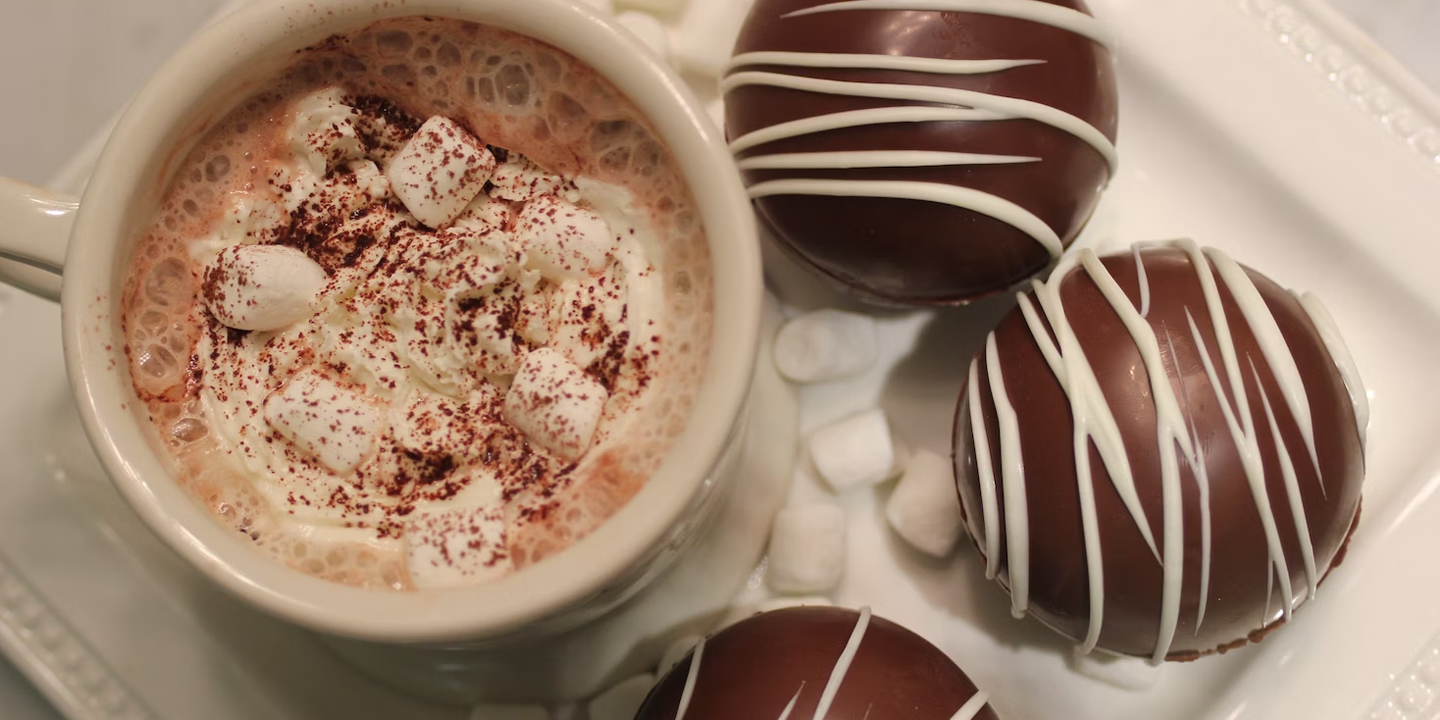Midnight Munchies Are Real—Here's Why You Get Snackish At Night
We've all been there—curled up on the couch at 10 p.m. with a good book when we remember the bag of Lays in the cabinet and can suddenly think of nothing else. Giving in to late-night cravings every now and then is perfectly normal, but if it becomes a habit, it can completely derail your health goals. This is especially frustrating if you've worked hard all day, eating healthy and watching your calorie intake. But why is the urge to snack so much stronger at night, anyway?
Midnight munchies, explained
The most obvious reason we get snackish at night is that we haven't nourished ourselves properly throughout the day. If you skip meals earlier in the day, you'll have a calorie deficit at night, triggering relentless cravings. As we don't tend to make the best nutritional choices late at night, it's best to get our calories from daytime meals instead.
Outside of plain old hunger, fatigue, stress, and emotions can also trigger your late-night eating urges. People often use food, particularly unhealthy "comfort" food, as a coping mechanism for negative emotions. Like every woman who's eaten a whole tub of Ben & Jerry's while crying over a man, we snack to curb loneliness, sadness, or boredom.
Stress raises your levels of cortisol, which increases appetite in some people, and many of us feel more stressed at night because there are fewer tasks to distract us from our worries. What's more, eating activates your vagus nerve, bringing you into a calm state.
Fatigue from a long day or lack of sleep causes hormonal changes that leave you feeling less full or satisfied after eating, and amplify activity in the region of the brain responsible for emotions and food salience, leading to more cravings. When your body is tired, it seeks quick energy from things like sugar and processed carbs. Ironically, giving in to your hunger late at night because you're sleepy will result in poor sleep quality, and you'll just have more fatigue and cravings the following day. It's a vicious cycle.
Blood sugar swings may also be to blame for your cravings, as they can spike stress responses, meaning what you eat throughout the day matters. If your diet consists of a lot of empty carbs and lacks whole foods, fiber, and protein, you're more likely to experience cravings due to blood sugar spikes and crashes.
The problem with late-night eating
There's a strong association between eating late and gaining weight. Researchers have theorized that this is because it goes against your circadian rhythm, but further evidence indicates that it may have more to do with what you eat than when you eat. Late-night eaters tend to consume more food, and we know that eating more calories than you burn leads to weight gain. What's more, late-night eaters tend to make poorer nutritional choices, opting for more calorie-dense junk foods.
Practical strategies
If you want to curb your late-night snacking habit once and for all, there are a few proven strategies you can try. Keeping a feelings journal is one way to identify and address emotional triggers. How it works is you take a pause before you begin your binge-eating, and ask yourself if you had some healthy food like oatmeal in front of you, would you feel like eating it? If the answer is yes, you might actually be hungry, but if it's no, the source of your snacking urge is something else. Try to pinpoint your emotions and write about them in a journal. Another way to curb your late-night eating habit is to ensure you're following a healthy diet, getting enough nutrients and whole foods throughout your day. Using apps like "MyFitnessPal," where you can keep track of what you eat, can help you determine if you're reaching your dietary requirements and keep you accountable.
KEEP ON READING









